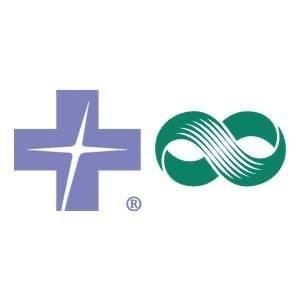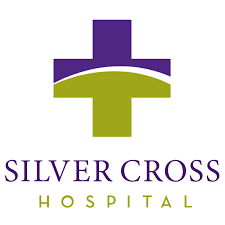OverviewToday, SCA Health has grown to 11,000 teammates who care for 1 million patients each year and support physician specialists holistically in many aspects of patient care. Together, our teammates create value in specialty care by aligning physicians, health plans and health systems around a common goal: delivering on the quadruple aim of high-quality outcomes and a better experience for patients and providers, all at a lower total cost of care.
As part of Optum, we participate in an integrated care delivery system that enables us to support our partners as they navigate a complex healthcare environment, Only SCA Health has a dynamic group of physician-driven, specialty care businesses that allows us to customize solutions, no matter the need or challenge:
- We connect patients to physicians in new and differentiated ways as part of Optum and with our new Specialty Management Solutions business.
- We have pioneered a physician-led, multi-site model of practice solutions that restores physician agency by aligning incentives to support growth and transition to value-based care.
- We lead the industry in value-based payment solutions through our Global 1 bundled payment convener, that provides easy predictable billing to patients.
- We help physicians address everything beyond surgical procedures, including anesthesia and ancillary service lines.
The new SCA Health represents who we are today and where we are going—and the growing career opportunities for YOU.
ResponsibilitiesThe Charge Nurse supervises and supports a nursing staff, while also treating a limited number of patients. They are responsible for maintaining a high level of patient care, evaluating other nurses and acting as an educational resource for nurses.
Key Responsibilities:
- Charge nurse is required to be an experienced registered nurse who will display leadership, management and communication skills. They are responsible for managing, supervising and assisting the nursing staff in the operating room, as well as providing administrative support and patient care.
- Regular duties include directing the preadmission, admission, discharge and general flow of patients into the operating room and assigning nurses and support staff to patients/rooms. While daily goals must be met, effective charge nurses are flexible and able to prioritize and adapt during emergencies.
- Charge nurse will provide guidance on administering care to new patients or those with special needs and answer questions regarding operating room protocol. They frequently work with other nurses and patients to create a plan of care that is individualized to a patient's needs. Charge nurse will develop and implement training courses and organize needs assessment to help educate and train new nurses and staff.
Administrative Duties and Responsibilities
- Aside from managerial responsibilities, charge nurses perform administrative duties including creating schedules, maintaining adequate supplies and informing staff of changes to protocol. In some settings, charge nurses plan budgets for the nursing staff.
Nursing Duties and Responsibilities
- While most duties and responsibilities are managerial and administrative, charge nurses also provide patient care. Although the number of patients and relative difficulty of each case may vary depending on the schedule. Other duties will include circulating a surgical room.
Main Duties and Responsibilities:
- Are in complete alignment with our core values
- To promote the highest standards of clinical nursing care
- To lead, manage and supervise the work of the Staff Nurses
- To provide person centered nursing care to residents which enables them to enjoy a valued life
- Complete one to one supervision sessions and Appraisals for Staff Nurses
- To maintain good working relationships with the nursing and care team, attend staff meetings and encourage input from whole team on improvements to the care home service
- Ensure effective assessment, planning, implementation and evaluation of patient care through the development of written care plans
- To maintain correctly written records as required by the company and the regulatory bodies
- To communicate all requests and changes of practice to all relevant personnel
- To assume named nurse/link nurse responsibilities
- To report any injuries, disease and dangerous practice to all relevant personnel
- To challenge poor practice and provide guidance for improving practice.
- Dealing with matters arising in the team with a view to settlement as opposed to escalation – if necessary, involve HR department for support and advice
- Ensuring that all staff comply with the organization’s policies and procedures including Health and Safety and Fire Regulations
- Ensuring that the service complies with regulatory requirements e.g. Control of Infection
- Attending staff meetings internally as required
- Maintaining sound working relationships with staff in regulatory bodies and other relevant organizations
PreAdmission Testing
Develop an individualized perianesthesia plan of care by implementing:
- Communicating the patient’s current status throughout the perianesthesia continuum of care.
- Evaluating the patient’s past medical history and surgical plan using the PAT anesthesia protocols
- Interviewing pre-operative patients to gather necessary data to assist for admission
- Reviewing all preoperative test results and notifying physicians when results are outside normal limits or incomplete.
- Serving as initial and primary contact for referral sources to direct screening and clearance of patients scheduled for, or potentially to be scheduled for procedures.
- Understanding medications and their actions and educating the patient on which medications need to be taken day of surgery.
- Demonstrating safe operation of equipment and machinery and follows procedures for reporting and correcting an unsafe situation.
- Speaking up with safety concerns acting as the patient’s advocate.
- Handling specimens according to facility policy and procedures.
- Adhering to standard precautions including the use of personal protective equipment.
- Administering medications safely and correctly by using the 8-rights of safe medication administration.
- Performing interventions to maintain the integrity of the patient’s wound and tissue perfusion at or above baseline levels.
- Providing nursing and appropriate monitoring in accordance with policies and procedures.
- Performing interventions to protect patient from infection.
- Managing patient’s other co-morbid conditions as applicable.
- Assessing the knowledge level of the patient or designated support person.
- Providing education regarding the expected psychosocial response, nutritional management, medical management, pain management, wound management, and expected responses to the operative or invasive procedure.
- Involving patient or designated support person actively in decisions affecting his or her perioperative plan of care and the rehabilitation process.
- Protecting patient’s rights, dignity, and privacy.
- Providing age-specific, culturally competent, ethical care within legal standards of practice; and
- Complying with Universal Protocol and facility site validation and time-out policy.
Post Anesthesia Care
Develop an individualized perianesthesia plan of care. Implement the plan of care including the following interventions:
- Preparing for and managing patient recovery from anesthesia – general.
- Preparing for and managing patient recovery from anesthesia – monitored anesthesia care.
- Preparing for and managing patient recovery from anesthesia – regional.
- Preparing for and managing patient recovery from anesthesia – local.
- Preparing for and protecting patient from injury caused by positioning, thermal sources, and extraneous objects.
- Communicating the patient’s current status throughout the perianesthesia continuum of care.
- Providing acute pain and comfort management as needed.
- Administering medications safely and correctly by using the 8-rights of safe medication administration.
- Performing interventions to maintain the integrity of the patient’s wound and tissue perfusion at or above baseline levels.
- Performing interventions to maintain the status of the patient’s genitourinary, gastrointestinal, musculoskeletal, endocrine, respiratory, cardiovascular, and neurological systems, and fluid, electrolyte, and acid-base balances at or above baseline levels.
- Performing interventions to ensure the patient is at or returned to normothermia at the conclusion of the immediate postoperative period.
- Performing interventions to protect patient from infection.
- Managing patient’s other co-morbid conditions as applicable.
- Managing patient’s fluid as prescribed.
- Assessing knowledge level of patient or designated support person and providing education regarding the expected psychosocial response, nutritional management, medication management, pain and comfort management, wound management, and expected responses to the operative or invasive procedure;
- Involving patient or designated support person actively in decisions affecting his or her perioperative plan of care and the rehabilitation process.
- Protecting patient’s rights, dignity, and privacy.
- Providing age-specific, culturally competent, ethical care within legal standards of practice; and
- Providing consistent and comparable care regardless of the setting.
Qualifications- Bachelor's degree or equivalent experience required
- Current license to practice professional nursing in the State required
- BLS for Healthcare Providers required
- PALS/ACLS (this can be obtained)
USD $35.00/Hr. USD $45.00/Hr.









